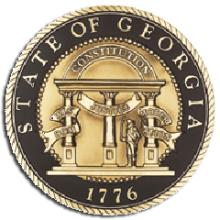
Fast, affordable Internet access for all.

To improve rural Internet access, the Georgia Joint House and Senate Study Committee on High Speed Broadband Communications Access for All Georgians recommends that Georgia enable municipal networks and empower rural electric cooperatives.
The committee recently released their report on potential solutions for the lack of rural connectivity. They held six public meetings over the course of four months in 2016, consulting with stakeholders and concerned citizens.
Support of Local Government Networks
Specifically, the report recommended that the Georgia legislature:
“Reaffirm the state’s approval of competitive telecommunication markets by continuing to permit locally-owned and operated government broadband services”
In the economic development section of the report, they detailed the positive role of community networks and the challenges in finding financing.
The report pointed to the success of two community networks, Community Network Services (CNS) and ElbertonNet. ElbertonNet is the fifteen-year-old community network of Elberton, Georgia. The report praised the community network’s “tremendous public feedback” and “exceptional customer service.”
Several statements referred to the fact that the current situation causes communities to miss economic development opportunities and that there are not enough funding options. The report suggested ways to develop more funding for rural connectivity projects, from creating a dedicated fund to repurposing existing programs.
Role of Rural Electric Cooperatives
The report also recommended that the Georgia legislature:
“Amend existing law to provide Georgia’s Electric Membership Corporations statutory clarity to provide telecommunication and broadband services.”
Georgia’s 41 electric membership corporations, also known as electric cooperatives or EMCs, provide electricity to more than 70 percent of the land area. The state law is unclear about electric cooperatives providing Internet service, but some EMCs in northern Georgia have already invested in infrastructure for high-speed Internet access.
This is not a problem exclusive to Georgia. Other states also have not fully clarified the role of electric cooperatives in providing Internet service. Electric cooperatives throughout the United States, however, have still made strides in connecting rural communities.
Next up for Georgia
The report provides the Georgia legislature with several action steps that they can take. The state’s next legislative session will convene on Monday, January 9th.
